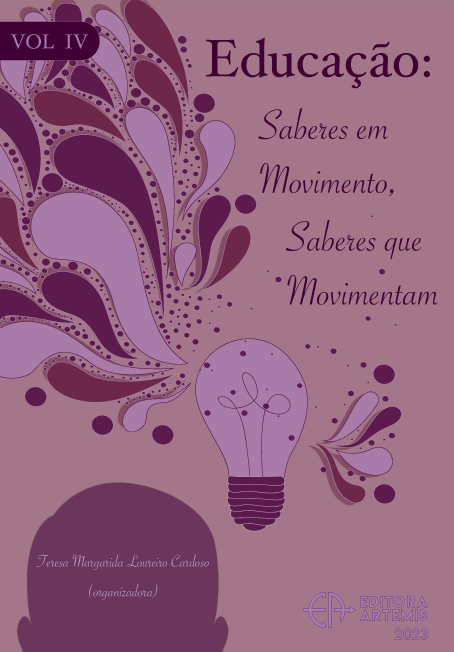
PAPEL DEL DOCENTE UNIVERSITARIO COMO FACTOR MOTIVADOR PARA CREAR UNA CULTURA DE APRENDIZAJE ABIERTO EN LA PRODUCCIÓN CIENTÍFICA DE ESTUDIANTES UNIVERSITARIOS PARA PUBLICACIONES INDEXADAS
La falta de publicaciones estudiantiles sobre temas de investigación internacionales que sean indexados y citados por el sistema internacional, así como la importancia de la función docente como elemento motivador, constituye un problema de primer orden para las universidades. Según Mercado (2017), “una institución universitaria que no promueve la investigación en su comunidad está en desventaja frente a otras, porque la generación de conocimiento es importante para el empoderamiento como institución académica y competitiva” (p.96). Además, Mercado (2017) sostiene que “la pertinencia de investigar y publicar es fundamental para generar conocimiento en la sociedad y se logra solo con la producción científica” (p. 96). Dado que la producción científica y la indexación son parte integral de la investigación y el desarrollo profesional del estudiante, las universidades y la comunidad de docentes y estudiantes deben ser parte de una cultura de aprendizaje abierto que valora la investigación en su producción, indexación y citación. Por lo tanto, las universidades como institución de estudiantes y docentes deben promover ambientes donde publicar generando sus propias revistas indexadas en diversos programas profesionales, involucrando el aprendizaje abierto, y aludiendo a las referencias bibliográficas que se solicitan en las sílabas por tema. Por lo tanto, es importante considerar los factores que explican por qué otras naciones, a diferencia de Estados Unidos, tienen un alto índice de producción, indexación y citas científicas. En un artículo reciente, Castro (2018) señala que “…la producción científica de los estudiantes en las revistas es limitada. La perspectiva del estudiante es que no recibe la instrucción suficiente para concluir la publicación de su estudio, o cuando sí recibe es inadecuado". (pág. 92). La personalización y otros recursos lingüísticos subjetivos son vistos como un inconveniente en la escritura, según Sánchez (2017). (pág. 18). “…Las universidades deben hacer frente a la influencia que esta producción tiene en el entorno científico (…), el resultado, la indexación y el factor de impacto”, Villegas (2016). (págs. 1-2). Nos preguntamos por el valor de la producción científica y mediremos el valor o el impacto, para ello debemos evaluar integralmente, es decir, afirmamos que lo que se produce y se hace sería relevante, aunque sea de forma preliminar, porque aún no reconocer la importancia de la escritura.
PAPEL DEL DOCENTE UNIVERSITARIO COMO FACTOR MOTIVADOR PARA CREAR UNA CULTURA DE APRENDIZAJE ABIERTO EN LA PRODUCCIÓN CIENTÍFICA DE ESTUDIANTES UNIVERSITARIOS PARA PUBLICACIONES INDEXADAS
-
DOI: 10.37572/EdArt_2802237814
-
Palavras-chave: : aprendizaje abierto; docencia universitaria y motivación; publicación científica del estudiante; publicación indexada; rol del docente universitario; universidad y revistas indexadas.
-
Keywords: open learning; university teaching and motivation; student scientific publication; indexed publication; role of the university professor; university and indexed journals.
-
Abstract:
The lack of student publications on international research topics that are indexed and cited by the international system, as well as the importance of the teaching function as a motivating element, constitute a major problem for universities. According to Mercado (2017), "a university institution that does not promote research in its community is at a disadvantage compared to others, because the generation of knowledge is important for empowerment as an academic and competitive institution" (p. 96). In addition, Mercado (2017) argues that "the relevance of researching and publishing is essential to generating knowledge in society and is achieved only with scientific production" (p. 96). Since scientific production and indexing are integral parts of research and student professional development, universities and the faculty and student community must be part of an open learning culture that values research in its production, indexing, and citation. Therefore, universities as an institution for students and teachers should promote environments in which to publish by generating their own journals indexed in various professional programs, involving open learning, and alluding to the bibliographic references that are requested in the syllables by topic. Therefore, it is important to consider the factors that explain why other nations, unlike the United States, have a high rate of production, indexing, and scientific citations. In a recent article, Castro (2018) points out that "the scientific production of students in journals is limited." "The student's perspective is that they do not receive sufficient instruction to complete the publication of their study, or when they do receive it, it is inadequate" (p. 92). Personalization and other subjective linguistic resources are seen as a drawback in writing, according to Sánchez (2017) (p. 18). "Universities must face the influence that this production has on the scientific environment (...), the result, the indexing, and the impact factor." Villegas (2016). (pp. 1-2) We ask ourselves about the value of scientific production, and we will measure the value or impact; however, we must evaluate comprehensively, that is, we must affirm that what is produced and done is relevant, even if preliminary, because they still do not recognize the importance of writing.
-
Número de páginas: 17
- Jorge Leoncio Rivera Muñoz
- Magna Asiscla CUSIMAYTA QUISPE
- Ursula Isabel ROMANI MIRANDA
- Jaime Modesto PONCE DE LEÓN MUÑOZ
- Luis Alberto VÁSQUEZ MUÑOZ
- Alberto Salvador PALACIOS JIMENÉZ
- Rosa María RUESTAS MAURICIO
- Juan Carlos PALOMINO PAREDES
- Elias Alexander MORON GONZALES
- Paul Anthony COLLADO MATOS
- Josselyn VILLAVICENCIO CAMACHO
- Angie Diana CORRALES QUINTO
- Ingrid Karumi ALVARADO ALVARADO
- Saúl Edgar SOLÍS ROJAS
- Martin Carlos AGUIRRE MACAVILCA

